Browse
Culture And Society
Global South Feminist Scholar Award
This award is conceived to recognise the significant contributions of mid-career to senior scholars in and from the Global South to feminist and gender scholarship in IR broadly defined. Hegemonic Euro- and West-centrism often renders the important work of this category of scholars invisible as study after study from within and without the ISA has shown. Because their subjects, methods, sources, resources, theories and frameworks are evaluated according to standards of scholarship set by the Global North academy, this work is often devalued and invisibilized. At the same time, scholars from the North, feminist or not, draw upon these and other indigenous knowledges, often without acknowledgement, to better situate their own research on those contexts.
Thus, this award addresses the acknowledged tendency for epistemologies of the Global South to be marginalised and unaccounted for both in IR specifically, and global knowledge production in general, and for feminist scholarship to be diminished within the various disciplines. It aims to decentre whiteness, recognise other universes of knowledge, acknowledge the contributions of Global South studies to the global academy, and engender the decolonisation of the field of feminist and gender studies, and of international studies itself.
In doing these, the proposed award enhances the ongoing efforts at inclusion and transformation within the FTGS, complementing existing awards which recognise excellence in feminist research, while at the same time filling a gap in redefining excellence in more global and inclusive terms.
Eligibility
Scholars in the area of feminist theory and gender studies whose scholarship have extended the frontiers of the discipline and advanced our understanding about Global South contexts in particular
Must be from the Global South and based at institutions located there
Must have made significant and demonstrable impact (locally or internationally) on the fields of feminism, gender and international studies, broadly defined, either through scholarship and teaching, mentoring, leadership, policy-relevant work, or any combination of these
Targets mid-career to senior scholars specifically
Nominees need not be members of ISA and FTGS at the time of nomination, but awardees are expected to become members of ISA and FTGS upon conferment of the award
Nominations
The award committee eagerly solicits nominations from all across the globe of individuals who meet the above criteria. Given the structural barriers already identified above, the newly-constituted award committee will also actively reach out to individuals, institutions and networks in the Global South for nominations.
Nominators may submit (a) a nomination letter highlighting the fitness of the nominee for this award (b) nominee’s abridged CV, no more than 5 pages long, and (c) supporting letters (if available) from persons familiar with the nominee’s scholarship and work.
Nomination and supporting letters should not exceed two pages each.
Self-nominations are welcome.
Prize
The recipient will receive a certificate and a cash prize of $800.
How to apply
Submit all documents by email to the chair of the award committee, Olajumoke Yacob-Haliso, yacob-halisoo@babcock.edu.ng. The deadline for nomination this year is October 18, 2021.
About the FTGS
The Feminist Theory and Gender Studies section of the International Studies Association brings together scholars who apply feminist theory to International Relations or look at the field through a gender lens. For more information, visit: https://www.isanet.org/ISA/Sections/FTGS.
By:
Raquel Acosta
Monday, Oct 11, 2021
CULTURE AND SOCIETY
+1
No Preview Available
Leave a comment
Public Dialogue “Innovating Financing for Gender Equity and Implementing SDG #5 in Africa”
AAP is excited to be hosting our next Public Dialogue “Innovating Financing for Gender Equity and Implementing SDG #5 in Africa” on Wednesday, October 27th at 9:00am-10:30 EDT. This dialogue session will be co-hosted by our affiliates at the University of Nigeria, Nsukka and those at the Michigan State University Center for Gender in Global Context. This session will examine innovative financial strategies for African universities to engage across all sectors and the impact these engagements are having on the transformation of gender equity and the implementation of sustainable development goal #5 (SDG). AAP recognizes that universities are now seeing themselves as catalysts for positive change in their communities and beyond, and is proud to be a part of this progress.
To learn more: https://aap.isp.msu.edu/engage/aap-public-dialogue-series/fall-2021-public-dialogue-series/
To register:
https://msu.zoom.us/webinar/register/8916334617675/WN_noPMv7TISH6MbCUQi07K6g
By:
Raquel Acosta
Wednesday, Oct 6, 2021
CULTURE AND SOCIETY
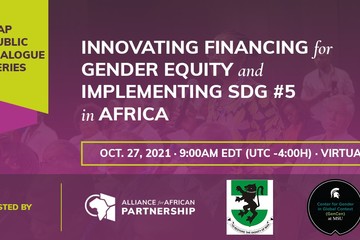
Leave a comment
Call for Thought Pieces Regarding Race and Ethnicity in Africa and the Diaspora
AAP is issuing a call for thought pieces from anywhere in the world that are short, critical reflections of issues around race and ethnicity in higher education institutions as well as other key stakeholder organizations in Africa and the African Diaspora.
The first deadline for thought piece summary (up to 500 words) is Oct. 30, 2021. Summaries must include title, text, author’s name and affiliation.
For the full call for contributions and submission details, visit the link below.
https://aap.isp.msu.edu/engage/aap-perspectives/
By:
Raquel Acosta
Friday, Oct 1, 2021
CULTURE AND SOCIETY
+1
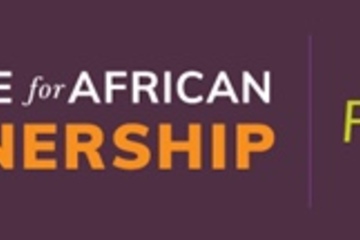
Leave a comment
Mali’s roadmap for lasting peace has laudable goals: but it doesn’t go far enough
Steve Esquith, one of the PIs during the first round of AAP Transformation Institutions Strategic Partnership Grants and an African Futures mentor, has recently published an article within @TheConversation. This article is related to his peace-building work achieved under the grant. We encourage colleagues to read through his review of Mali’s new government action plan.
Read the article: https://theconversation.com/malis-roadmap-for-lasting-peace-has-laudable-goals-but-it-doesnt-go-far-enough-166419
By:
Raquel Acosta
Tuesday, Sep 14, 2021
CULTURE AND SOCIETY

Leave a comment
Souleymane Bachir Diagne in conversation with Wayne Modest, Aude Christel Mgba, and Ryan Skinner.
CONVERSATION | 9 Sept 2021 | 16.00-17.45 CET | Zoom online
As part of the Thinking With series, we invite Souleymane Bachir Diagne to discuss his work in conversation with Aude Christel Mgba and Ryan Skinner. In African Art as Philosophy: Senghor, Bergson and the Idea of Negritude (2011), Souleymane Bachir Diagne writes of Léopold Sédar Senghor’s lifelong project to think through “affirmation of the self [as] a natural reaction to colonial domination” (188): “Beyond affirming the aesthetic virtues revealed in pieces of art created by Africans, Senghor wished to stress the metaphysics they offered for reflection: along with the art through which it had been written, he wished to rescue a worldview, a feeling and a thinking that were also contributions to the humanism of tomorrow by African-being-in-the-world” (7-8).
“In our efforts at the Nationaal Museum van Wereldculturen to better honor and listen to the lives the ‘objects’ in our museums have led and wish to lead, we hope to better think more reciprocally in relationship to these objects and the communities invested in their being. We are compelled by Diagne’s work to think more deeply about the histories, afterlives, and temporalities in which our objects exist. How might we allow the objects to speak better from themselves, for themselves, while all the while honoring the complex positionalities of those who are enjoined to engage these objects? We understand those persons who are called upon to better honor the objects to be: those living in the places where the objects were obtained (gifted, seized, stolen); those who relate to African art from diasporic sensibilities; and those who are implicated by a colonial past as perpetrator and/or who benefit from systems of privilege, as per Michael Rothberg. Together, in Relation, and even thanks to the tensions implied by Glissantian Opacity, we hope to better be responsible to our work and engagement as professionals and visitors to our ethnographic museums.”
More about Zoom event: https://www.materialculture.nl/en/events/thinking-souleymane-bachir-diagne-african-art-phi...
Registration for Zoom event: https://us06web.zoom.us/webinar/register/WN_X6gKuBv3RVuw5FEGTCE6uw
By:
Raquel Acosta
Thursday, Sep 2, 2021
CULTURE AND SOCIETY
+1
No Preview Available
Leave a comment
Call for Abstracts: "Relations to Plants as a Heritage From Below in African Cities"
The deadline for submitting a paper for the panel "Relations to Plants as a Heritage From Below in African Cities" at the next African Studies Association of Africa (ASAA) conference, at the University of Cape Town (South Africa) from 11 to 16 April 2022, has been extended to 30 September. The submission of the paper proposal (max. 250 words) has to be done via this platform: https://2022conference.as-aa.org/submit-work/call-for-abstracts/
ASAA encourages paper presenters to reflect on the conference theme and address issues outlined in the theme description. With a massive number of abstracts submitted for presentations at ASAA conferences, the ASAA2022 Conference Committee is dedicated to guaranteeing a timely and fair review process with the international norms of double-blind peer review.
The decisions of the Scientific Committee will be communicated on 14th November 2021. ASAA early-bird registration will open on 1st November 2021. See eligibility criteria and learn about the application process in the link below!
Call for abstracts – ASAA2022 (as-aa.org)
For any queries with the above, please email: as-aa2022.org@uct.ac.za
By:
Raquel Acosta
Thursday, Sep 2, 2021
CULTURE AND SOCIETY
+1
No Preview Available
Leave a comment
The Ibrahim Leadership Fellowships
The Ibrahim Leadership Fellowships were established in 2011 to identify and mentor the future generation of outstanding African leaders. Each year three Fellows have an opportunity to work in the executive offices of the AfDB (Abidjan), ECA (Addis Ababa) or the ITC (Geneva), with a stipend of $100,000. During their 12-month programmes, Fellows gain both technical and leadership skills, while contributing directly to research and policy design. A special feature of the programme is the opportunity to benefit from the direct mentorship of the heads of the host organisations. Fellows also become members of the Now Generation Network (NGN), through which they continue to contribute their skills and insights to building a better Africa.
More information about the opportunity can be found on Mo Ibrahim Foundation website.
By:
Derek Tobias
Wednesday, Aug 25, 2021
CULTURE AND SOCIETY
+1

Leave a comment
ASA 64th Annual Meeting: 2021 Call for Proposals
AfricaNow! Call for Proposals
The African Studies Association (ASA) is excited to continue our AfricaNow! format to accommodate emerging issues on our Annual Meeting program. These sessions will feature late-breaking issues that emerged subsequent to the close of the ASA CFP.
Format:Sessions can be proposed as group discussions (maximum of five presenters), individual presentations, or memorials. Please ensure that your AfricaNow! proposal meets the following criteria:• Proposals must relate directly to current events on Africa and/or African Studies.• All AfricaNow! organizers and presenters must register for the Annual Meeting when notified of acceptance.
Suggested Topics for 2021 are (but not limited to):• Developments in Ethiopia, Chad, Eswatini, South Africa, etc.• TikTok, WitchTok, Internet Rituals, & Black Lives Matter• COVID Vaccination• The 2021 Olympics• Literary Analysis: We Are All Birds of Uganda, Black Sunday: A Novel, Unbury Our Dead With Song, etc.• All 2021 Memorials
To Submit:Please prepare a (1) basic title, (2) an abstract that describes the session and confirms its timeliness, (3) the format, (4) the names and affiliations of each presenter, (5) the duration of the session, and (6) your preferred date and time. We will do our best to accommodate your preferences.
Submission GuidelinesAfricaNow! sessions will not be peer-reviewed and submissions of formal panels and papers will not be accepted in this format. The participation rules do not apply to AfricaNow! sessions. Presenters who are already on the program may submit proposals. Abstracts that were already submitted prior to the submission deadline cannot be resubmitted for AfricaNow! consideration. All requests for sessions will be reviewed by the ASA Secretariat for general appropriateness.
The AfricaNow! submission portal via OpenWater is currently open and will close September 10, 2021.
SUBMIT TO AFRICANOW! HERE.
By:
Madeleine Futter
Wednesday, Aug 25, 2021
CULTURE AND SOCIETY
+1
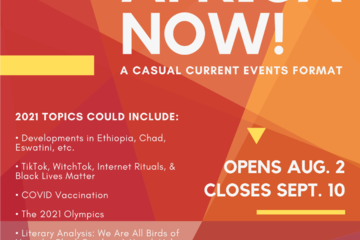
Leave a comment
The Humanities and Arts Research Program (HARP) Development program
The Humanities and Arts Research Program (HARP) Development program provides funds to support faculty who are conducting important research leading to creative and performance projects or activities in the arts and humanities. This limited funding is designed to support faculty in the development of projects that seem likely to enhance the reputation of the faculty member and the university.
Within the Development program, there are two panels that conduct the reviews: the Humanities Research panel and the Exhibition and Performance panel. The Humanities Research panel will review applications that are supporting research projects and scholarship broadly related to the humanities. The Exhibition and Performance panel will review proposals that support scholarship and creative activities leading to an exhibit or performance. See the FAQs for clarification.
The deadline for HARP Development applications will be in early-October, with awards announced in February. Funding will be available for a two year period beginning on March 1.
What types of projects are eligible?
HARP development projects should:
produce results or a product that is likely to receive external recognition (e.g., through a publisher's interest or through available distribution or exhibition venues) or be used beyond MSU.
ultimately lead to a scholarly or creative product (e.g., book, CD, musical composition, play, artwork) with the potential for significant impact in the discipline or related areas.
Who is eligible?
Tenured and tenure-track faculty
Faculty with uninterrupted, multi-year, fixed term appointments
Faculty with one-year appointments who are able to obtain written confirmation from their department chair of pending appointment through the duration of the grant (letters from the chair should be uploaded as part of the project description)
Academic specialists in the continuing appointment system who have the majority of their effort in the research category
Part time faculty who 1) have had an appointment for two consecutive years prior to the date of their submission, 2) have a commitment from their department chair indicating that their appointment will continue through the duration of the granting period, and 3) have an appointment of at least 50% with MSU
Faculty from Arts and Letters, Communication Arts and Sciences, James Madison, Lyman Briggs, Music, Social Science, and the Residential College in the Arts and Humanities are eligible to apply for HARP funding.
NOTE: Faculty emeriti are not eligible to apply for HARP funding.
NOTE: Faculty rank and proximity to promotion and tenure decisions will not be considered in the evaluation of proposals. All applications will be evaluated on the merit of the work being proposed.
For more information or to apply, visit the MSU Research and Innovation website
By:
Derek Tobias
Thursday, Aug 19, 2021
CULTURE AND SOCIETY
+3

Leave a comment
Discretionary Funding Initiative (DFI)
The Discretionary Funding Initiative (DFI), funded by the Michigan State University Foundation, provides bridge funds for tenure stream faculty for additional studies needed for resubmission of an unsuccessful, but nearly fundable, grant application to the same program within a funding agency.
To request funding from this program, faculty should submit a proposal via the grant proposal system. Applicants will be expected to provide copies of their previous external reviews, if applicable, and describe the work that will be completed to address the comments provided in those documents. The research associate dean of the applicant's college (lead college if appointed in multiple colleges) will review applications, and submit a prioritized list to the Office for Research and Innovation (OR&I). Requests for support approved by the research associate deans will be reviewed by the OR&I.
The maximum award from OR&I will be $25K and will require a 100% (up to $25K) match from units or colleges. Funds will be available for 18 months.
For more information or to apply, click here.
By:
Derek Tobias
Thursday, Aug 19, 2021
AGRI-FOOD SYSTEMS
+5

Leave a comment
AAUW: International Fellowships
Funding: $18,000–$30,000Opens: August 1Deadline: November 15
International Fellowships have been in existence since 1917. The program provides support for women pursuing full-time graduate or postdoctoral study in the United States to women who are not U.S. citizens or permanent residents, and who intend to return to their home country to pursue a professional career. A limited number of awards are available for study outside of the U.S. (excluding the applicant’s home country) to women who are members of Graduate Women International (see the list of GWI affiliates). Both graduate and postgraduate studies at accredited U.S. institutions are supported.
Applicants must have earned the equivalent of a U.S. bachelor’s degree by the application deadline and must have applied to their proposed institutions of study by the time of the application. Recipients are selected for academic achievement and demonstrated commitment to women and girls.
Recipients return to their home countries to become leaders in business, government, academia, community activism, the arts or scientific fields.
For more information go to: https://www.aauw.org/resources/programs/fellowships-grants/current-opportunities/international/
By:
Madeleine Futter
Monday, Aug 16, 2021
CULTURE AND SOCIETY
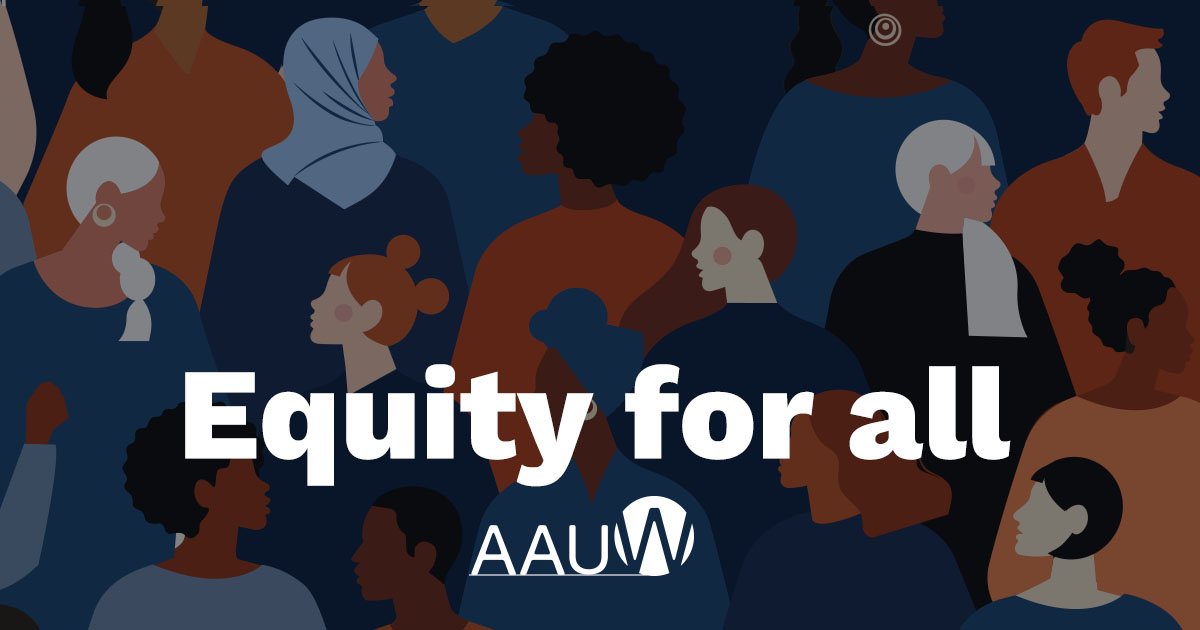
No Preview Available
Leave a comment
African Policy towards the US webinar
The African Centre for the Study of the United States, in collaboration with Good Governance Africa,
The Institute for Global Dialogue, Social Science Research Council and the Mail and Guardian, present: African Policy towards the US webinar
Date: 27 July 2021
Time: 4:00pm SAST / 10:00am EDT
US foreign policy has a huge impact on Africa’s cultural, political, economic and security interests. Join us as we hear from a range of experts as they unpack the steps Africans can take to build a coherent continental policy for engaging the US in a competitive and rapidly changing world order.
Registration Link for Webinar
https://mg.co.za/africa-us-policy/
For more information on the African Centre for the Study of the United States visit: https://www.wits.ac.za/acsus/
For further inquiries, please contact ACSUS.research@wits.ac.za
Find us on Twitter Facebook and Linkedin
By:
Madeleine Futter
Monday, Aug 16, 2021
CULTURE AND SOCIETY
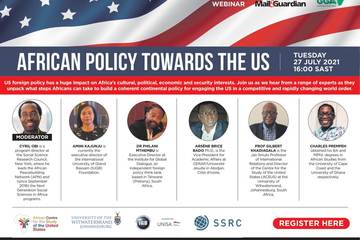

Leave a comment